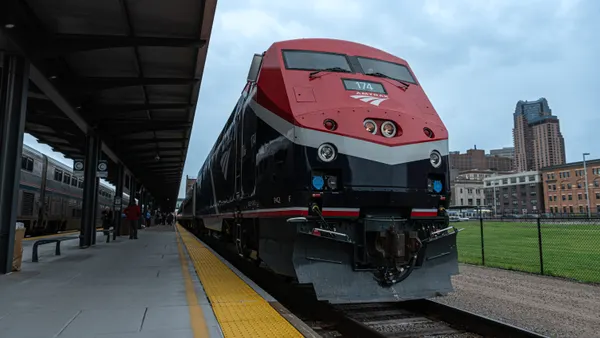WASHINGTON — Mayors across the country re-prioritize their major concerns as health and environmental issues climb a list topped by economic development and infrastructure, according to the findings in "State of the Cities."
Those were the major takeaways in a report by the National League of Cities (NLC), which analyzed the content of more than 150 "State of the City" speeches. The top issues discussed:
- Economic development 74%
- Infrastructure (57%)
- Health and human services (46%)
- Energy and environment (41%)
- Budget and management (41%)
Health jumped from sixth place in issues discussed last year to third, while energy rose from eighth to fourth (in a tie) over the same time period. “Whether you’re talking about infrastructure or climate change, mayors know that local action is critical to making our cities, towns and villages more sustainable and economically competitive,” Gary, IN Mayor and NLC president Karen Freeman-Wilson said in a statement.
"Whether you're talking about infrastructure or climate change, mayors know that local action is critical to making our cities, towns and villages more sustainable and economically competitive."

Karen Freeman-Wilson
Gary, IN Mayor and NLC president
The topic of health and human services encompasses a variety of city life, including healthy living and wellness and encouraging active lifestyles. It also touches on issues like substance abuse, mental health and the opioid crisis.
Anita Yadavalli, program director for city fiscal policy at NLC and one of the report's authors, said there has been a shift in the conversation around opioids. They have done less to seek out and punish drug dealers, and have moved toward using all means necessary to help addicts.
"They are trying to realize that they need to be talking to other parties like social workers, they need to be talking to addiction counselors, they really need to be involving all these people at the table when they are trying to help our most vulnerable populations," Yadavalli said.
Cities want to boost parks and recreation programs and open space to improve residents' health more generally. And they are being rewarded for it; The Trust for Public Land (TPL) found that 72% of residents in the 100 largest U.S. cities have a park within a 10-minute walk from their home, up from 70% last year. Washington, DC rose to top TPL's rankings after a growth in spending on parks amenities.
The report also found a surge of interest of climate change. With dire warnings of the impacts of global warming from the federal government, cities have been deliberate about fighting back with plans, policies and initiatives, given the dearth of national leadership.
Some have offered bold ideas like the national-level Green New Deal and its replicates in cities like New York City and Los Angeles, but Yadavalli said few cities are making such big pledges.
"Generally speaking, mayors are very aware that this is something that is happening and that they need to be paying attention to it, and they definitely need to be highlighting it to residents," she said. "But they aren't coming out and actually providing specific commentary."
One issue that continues to be a major priority for cities is infrastructure improvement, which had appeared on track for national progress until talks between President Donald Trump and Congressional Democrats broke down.
But on the city level, it remains a top priority for mayors. "You always hear about infrastructure," Freeman-Wilson said during a panel discussion.
The major priorities in city infrastructure remain fixing roads and potholes, according to NLC's analysis of the speeches, although there have also been pushes on improving pedestrian facilities and public transit.
Funding remains an issue in tight city budgets, but Miramar, FL Mayor Wayne Messam said that investment will "not only be saviors of our city, but also saviors of our country."












